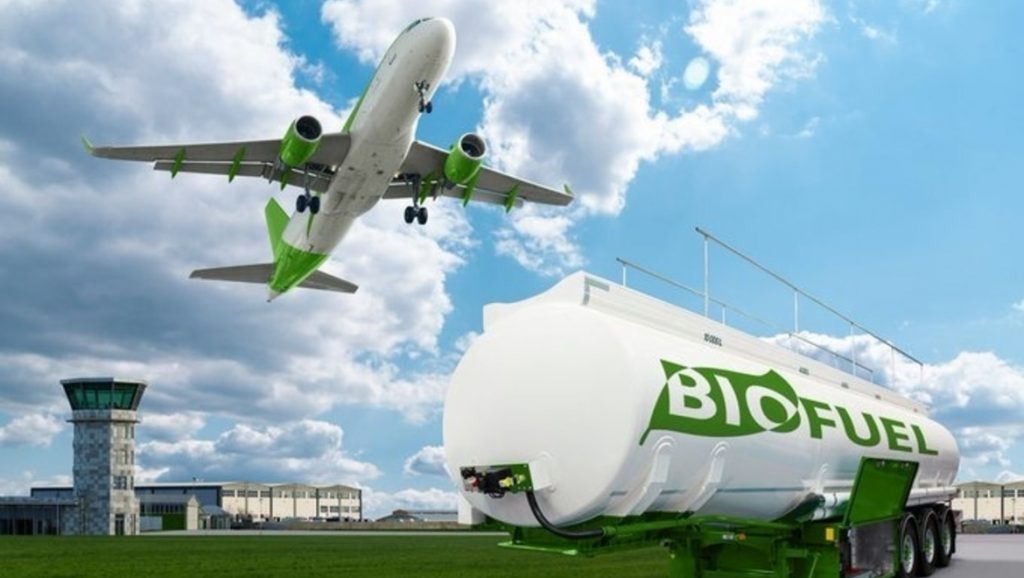
Australia’s first refinery for sustainable aviation fuel and renewable diesel is set to soon open its doors in Gladstone, Queensland, supported by the Queensland government.
The plant, announced early on Wednesday by Deputy Premier Steven Miles and Member for Gladstone Glenn Butcher, will be built in the Yarwun Industrial Precinct by Melbourne-based Oceania Biofuels, alongside local partners.
It will use locally sourced waste and sustainable feedstocks including tallow, used cooking oil and canola, to produce over 350 million litres of sustainable fuels for aircraft and vehicles per year.
The plant itself is being designed to operate on a zero-waste production model using green electricity, renewable hydrogen and carbon offsets, with construction to begin in early 2023.
The plant is planned to be fully operational by 2025.
“The proposed $500 million project will be Australia’s first commercial sustainable aviation fuel biorefinery, creating around 60 direct jobs and indirectly supporting an estimated 500 regional jobs during construction and operation, providing a great economic boost for the local community,” Deputy Premier Miles said.
“Oceania Biofuels were attracted to Queensland because of our commitment to develop a biofuels industry in this state.”
It marks a major step in Australia’s local sustainable aviation fuel (SAF) industry, following recent calls from Qantas boss Alan Joyce for additional government support to build Australian SAF capabilities.
“This project, in addition to Northern Oil’s Advanced Biofuel Pilot Plant, is growing this emerging industry in Gladstone, and strengthens our work towards creating a sustainable, export-orientated industrial biotechnology sector for Queensland, fuelling our economic future and contributing to our decarbonisation targets,” Miles said.
“Queensland has a great opportunity to gain a strong international reputation as the location for biofuels production in the Western Pacific Region and this new plant will signal to the world we are ready.”
Butcher added that fuel security around the globe is a “major issue” today, and the Oceania Biofuels biorefinery will “help improve Australia’s sovereign capability to produce and distribute finished fuels”.
“Commitments like this help to propel Central Queensland towards becoming hub for new industry, creating long-term jobs in the region, as part of Queensland’s plan for economic recovery,” he said.
Mike Everton, Oceania Biofuels CEO, said that securing a site for the plant is a major milestone for the company and Australia’s local SAF industry.
“We are thrilled to be bring this world-class project to Queensland. These greener alternative fuels will help reduce emissions from our planes and heavy vehicles, while creating a bridge to a more sustainable future,” Everton said.
“This is good news for Queensland and an exciting leap for Australia’s energy industry, creating regional jobs and a new export industry that will provide decarbonised fuel options for Australian industries.
“Gladstone is the ideal location for us as it has a highly skilled workforce and access to a deep-water port, furthering our export potential.”
It comes after Qantas last month revealed that it will invest $50 million to help support the establishment of a local sustainable aviation fuel (SAF) industry in Australia.
Notably, the airline also announced that by 2050, it hopes to see 60 per cent of all its fuel to be derived from SAF, alongside an interim goal of 10 per cent by 2030.
Qantas also called on the Australian government to support the initiative and make progress towards the production of locally sourced SAF.
“This is a huge opportunity for Australia … that can create a huge amount of jobs in this country, and the security it would give against what’s going on in the rest of the world,” Qantas CEO Alan Joyce said.
“Wouldn’t it be great if we were just dependant on our own country for that?”
Joyce said that Australia’s federal and state governments should be advocating more for a local SAF industry, stating it’s “a shame” that little progress has been made so far.
“It’s a shame if Qantas meets its 10 per cent sustainable aviation fuel target in 2030 by just buying it offshore. That would be terrible outrage in my mind, and it’s a terrible dropping of the ball in Australia.”
















